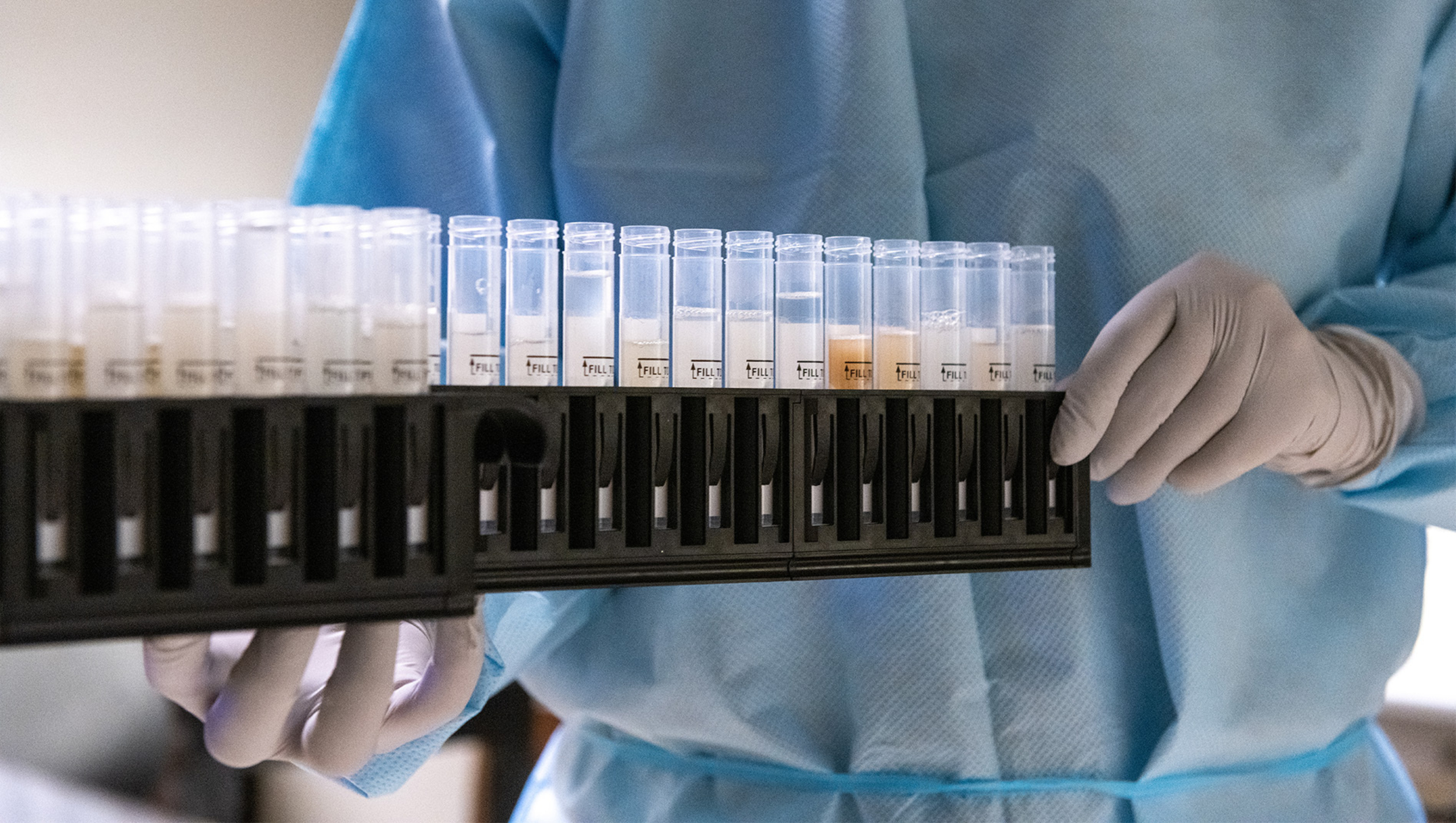Inspiration can come from anywhere. Dell Medical School’s Health Transformation Research Institute, in partnership with Texas Biologics, is creating opportunities for basic scientists and clinical investigators to exchange ideas and partner with one another to improve health care for all.

Bill Matsui, M.D., met one of his research collaborators on a bus: The two (then) strangers struck up a conversation about epigenetics, still new at the time, and that chance interaction spurred a yearslong partnership publishing research that leveraged Matsui’s expertise in clinical oncology.
“The great thing about that moment was that he was an expert in epigenetics, and I could ask whatever I wanted without needing to seem more informed than I was — he was just excited to talk about it,” says Matsui, vice dean of research at Dell Medical School. “These sorts of collision events are often the catalysts for great research.”
This kind of serendipity is what leaders of Dell Med’s Health Transformation Research Institute are looking to create with events like this fall’s open house, which was sponsored in partnership with Texas Biologics. On a Thursday evening, clinical researchers and lab scientists gathered in Dell Med’s Health Discovery Building to have informal conversations on key health themes: cancer translational research, molecular imaging, substance use disorder and mitochondrial dysfunction in bipolar disorder.
In one room, for example, Jack Virostko, Ph.D., presented on the opportunities that are possible with the help of molecular imaging, which involves monitoring specific molecules by highlighting them with biomarkers and watching their progress in the body.
“Diabetes has been an area that I’ve been thinking about for years as something that could benefit from molecular imaging, for example,” says Virostko, assistant professor in Dell Med’s Department of Diagnostic Medicine. “If doctors could monitor what insulin does on a molecular level, it could reveal a lot about how a person’s body is regulating it. And with people working on creating new molecules at Texas Biologics, this could maybe help determine where those molecules could be most effective, from delivering therapies to diagnostics.”
In another room, Kyaw Aung, M.D., Ph.D., an assistant professor in Dell Med’s Department of Oncology and medical oncologist at UT Health Austin, presented on how heterogeneity — the differences between cancer cells in the areas surrounding a tumor — may be key to understanding how a tumor will react to treatment and the possibilities for advancing precision medicine. In response to Aung’s presentation, audience members with expertise ranging from surgical oncology to pediatric neurosciences weighed in on the challenges and opportunities they saw in their fields.
We had a great idea. But what’s next?
Ideas sparked during events like the open house can create partnerships that otherwise wouldn’t have existed — but what then? To help launch the next phase of investigation, the Health Transformation Research Institute will support emerging new investigator teams as they develop proposals that can be supported by the collaboration between the institute and Texas Biologics.
Examples of funded efforts include a pilot trial to study the effects of a prebiotic that may help reduce inflammation for patients with Crohn’s disease — a collaboration between researchers at Dell Med, the College of Natural Sciences and the School of Pharmacy.
“To make progress, we need to create opportunities for seasoned investigators who think differently from one another to come together,” says Alison G. Cahill, M.D., director of the Health Transformation Research Institute and associate dean of translational research at Dell Medical School. “This is just one important way we set the stage for researchers to help improve how we take care of people.”